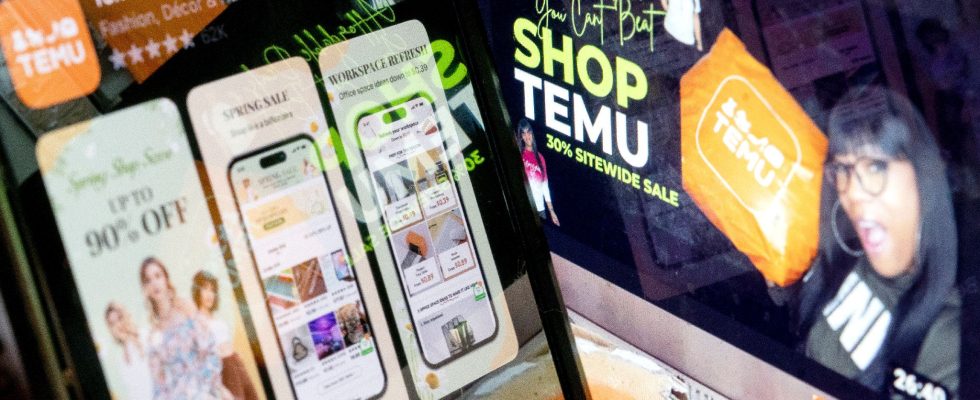Social network of the future or Trojan horse of the Chinese Communist Party? The burning debate about the TikTok application, which has more than a billion users around the world, tends to hide another reality: it is not the only one to be a hit outside its country of origin. The four tablets currently most downloaded from the Apple and Android application stores in the United States are all Chinese. ByteDance, the parent company of TikTok (3rd on the list), first had the good idea of decoupling its video editing system, called CapCut (2nd in the United States and 1st in France). According to the firm Sensor Tower, specializing in the digital economy, CapCut exceeded 400 million downloads worldwide at the end of 2022. In confidence, the company has also just launched Lemon8, a clever mix between Instagram and Pinterest, with already 650,000 downloads across the Atlantic in two short weeks.
Behind this conglomerate, China stands out especially in the field of shopping. Temu, powered by the Pinduoduo e-commerce platform, a competitor of Amazon, thus recorded 19 million downloads during the first quarter of 2023 alone (33 million since its launch in the United States) and is leading in the app stores. Its goal: to sell various and varied products produced in China – from memory foam bath mats, cases for wireless earphones, to thousands of gadgets to diffuse light or smells – at unbeatable prices. (often less than 10 euros) thanks to disintermediation. Enough to pass Temu for a boon in full inflation.
An interface focusing on gamification
A bit like TikTok for social networks, the tablet also concentrates all the most extreme practices (some would say problematic) in its sector: advertising harassment, massive use of crazy discounts, more or less clear partnerships on social networks… While highlighting an interface focusing on gamification, with games and rewards systems that allow the user to be retained by offering them gifts in particular. Operation in line with his Chinese comrade Shein, his alter ego in the fast fashion, firmly in fourth place (it is first in France in the “shopping” category). How to explain this sudden success? “Chinese tech companies, having survived a decade of fierce competition in the domestic consumer tech industry, can now be even better than Silicon Valley at creating easy-to-use and addictive apps,” said Zeyi Yang, a reporter for the MIT Technology Review in China. Some sometimes become sources of inspiration. The super-app concept popularized by WeChat, which combines messaging and payment functionalities, is being emulated in Europe and the United States. Elon Musk (Twitter) would like to draw inspiration from it for his future X platform.
Finally, China is a major provider of mobile games. The revenues of its giant Tencent amounted to 6.2 billion euros on the international market in 2022 (+ 3% over one year). The firm specializes in particular in the adaptation on smartphones of licenses originally American, Korean or Japanese, like PUBG, Call of Duty or Pokemon Unite. These titles, well known to gamers, have accumulated hundreds of millions of downloads worldwide. Tencent is currently preparing meticulously on phones around the world the arrival of Honor of Kings (HoK), a multiplayer online battle game strongly inspired by League of Legends, hitherto reserved for the Chinese market. For a little more, perhaps, to seal the golden age of Chinese apps.
